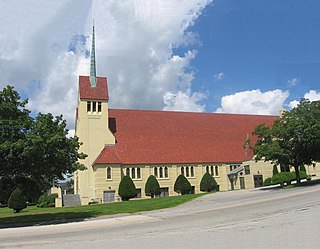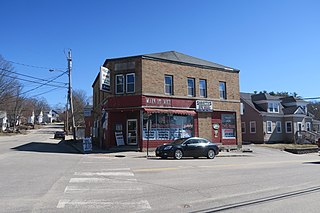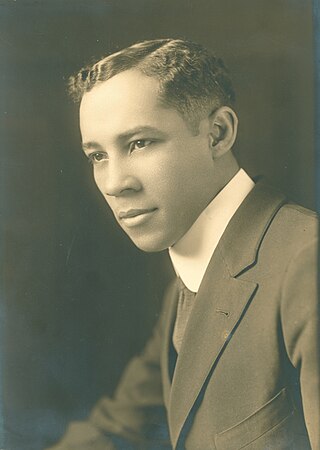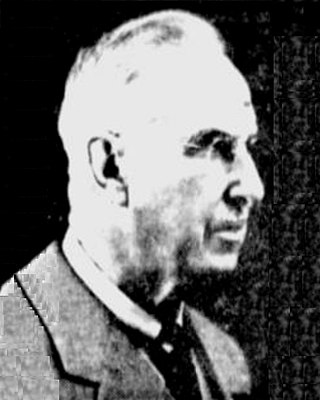
Androscoggin County is a county in the U.S. state of Maine. As of the 2020 census, the county's population was 111,139. Its county seat is Auburn and its largest city is Lewiston.

Auburn is a city in south-central Maine, within the United States. The city serves as the county seat of Androscoggin County. The population was 24,061 at the 2020 census. Auburn and its sister city Lewiston are known locally as the Twin Cities or Lewiston–Auburn (L–A).

Greene is a town in Androscoggin County, Maine, United States. The population was 4,376 at the 2020 census. It is included in both the Lewiston-Auburn, Maine metropolitan statistical area and the Lewiston-Auburn, Maine Metropolitan New England city and town area. The central village in the town comprises the Greene census-designated place.

Leeds is a town in Androscoggin County, Maine, United States. The population was 2,262 at the 2020 census. It is included in both the Lewiston-Auburn, Maine Metropolitan Statistical Area and the Lewiston-Auburn, Maine Metropolitan New England City and Town Area.

Lewiston is the second most populous city in the U.S. state of Maine and the most central city in Androscoggin County. The city lies halfway between Augusta, the state's capital, and Portland, the state's most populous city. It is one-half of the Lewiston-Auburn Metropolitan Statistical Area, commonly referred to as "L/A." or "L-A." Lewiston exerts a significant impact upon the diversity, religious variety, commerce, education, and economic power of Maine. It is known for an overall low cost of living, substantial access to medical care, and a low violent-crime rate. In recent years, the city of Lewiston has also seen a spike in economic and social growth. While the dominant language spoken in the city is English, it is home to a significant Somali population as well as the largest French-speaking population in the United States while it is second to St. Martin Parish, Louisiana, in percentage of speakers.

Livermore is a town in Androscoggin County, Maine, United States. Formerly in Oxford County, Maine. The population was 2,127 at the 2020 United States Census. It is included in both the Lewiston-Auburn, Maine Metropolitan Statistical Area and the Lewiston-Auburn, Maine Metropolitan New England City and Town Area. High schools students from Livermore attend Spruce Mountain High School in neighboring Livermore Falls. Livermore is known for The Norlands, the Washburn family home.

Sabattus is a town in Androscoggin County, Maine, United States. The population was 5,044 at the 2020 census. It is included in both the Lewiston-Auburn, Maine Metropolitan Statistical Area and the Lewiston-Auburn, Maine Metropolitan New England City and Town Area. The town was formerly known as "Webster", and changed its name to "Sabattus" in 1971, in honor of a former Anasagunticook Indian chief. The village of Sabattus is in the northwestern corner of the town, at the outlet of Sabattus Pond.

William Pierce Frye was an American politician from Maine. A member of the Republican Party, Frye spent most of his political career as a legislator, serving in the Maine House of Representatives and then U.S. House of Representatives, before being elected to the U.S. Senate, where he served for 30 years before dying in office. Frye was a member of the Frye political family, and was the grandfather of Wallace H. White Jr., and the son of John March Frye. He was also a prominent member of the Peucinian Society tradition.

Henry Lee Adams Jr. is a senior United States district judge of the United States District Court for the Middle District of Florida.
Howard Academy, at 306 NW 7th Avenue in Ocala, Florida, was a school for African-American children opened in 1866 or 1867 by the Freedmen's Bureau. Up until that time there had been no public and almost no private education for African Americans in Florida; education for slaves was prohibited by law and free blacks were made to feel unwelcome and encouraged to leave the state.

Edward Marion Augustus Chandler (1887–1973) was the second African American to receive a Ph.D. in chemistry while studying at University of Illinois at Urbana–Champaign and was a founding faculty member at Roosevelt University in Chicago.

Louis Bartlett Costello was an American newspaper publisher and banker who served as general manager and then president of The Lewiston Daily Sun and Lewiston Evening Journal in Lewiston, Maine. He began his career in journalism while still a student at Bates College and, by the end of his life, was a leading press figure in the state.
Joseph E. Lee was a lawyer, judge, federal official, and Republican politician in Florida. He served six years in the Florida House of Representatives and one term in the Florida State Senate and was also a municipal judge and in various Federal positions in Florida.
Thomas Warren Long was an African Methodist Episcopal minister and politician in Florida. He fought against the Confederacy during the American Civil War and later served in the state legislature.

James Dean was the first black American judge elected in Florida after Reconstruction. Dean was born in Ocala, Florida. He graduated from Cookman Institute and Howard University and actively participated in the political world and in his religious faith. He was a county judge in Monroe County, Florida until Florida governor Francis P. Fleming removed him from office. He was removed from office without a hearing after he married a Cuban couple, allegedly in violation of miscegenation laws. He was restored in good standing posthumously in 2002 by Florida governor Jeb Bush.
Peter W. Bryant was a lawyer and judge in Tampa, Florida. He was African American.

William Kosciusko Zewadski was a state legislator in Florida from 1896 to 1902. The Florida Archives has a composite photograph that includes an image of him as well as other legislative and judicial leaders in Florida. His son and grandson were given the same name.
Oscar Mack was an African-American World War I vet. An attempt was made to lynch Oscar Mack in Kissimmee, Osceola County, Florida. According to the United States Senate Committee on the Judiciary it was the 39th of 61 lynchings during 1922 in the United States. The New Britain Herald reported that he was lynched in Lake Jennie Jewell, in Orange County.













